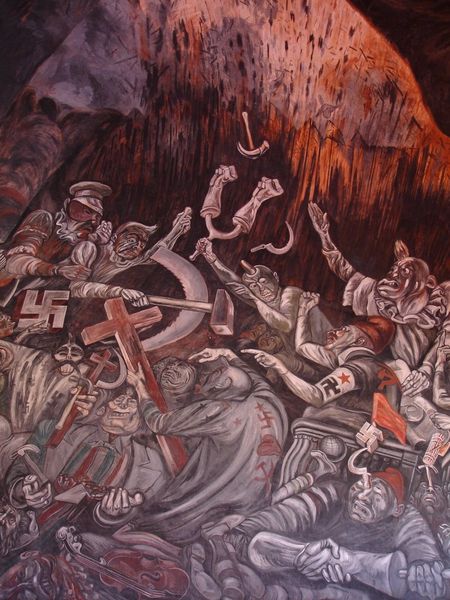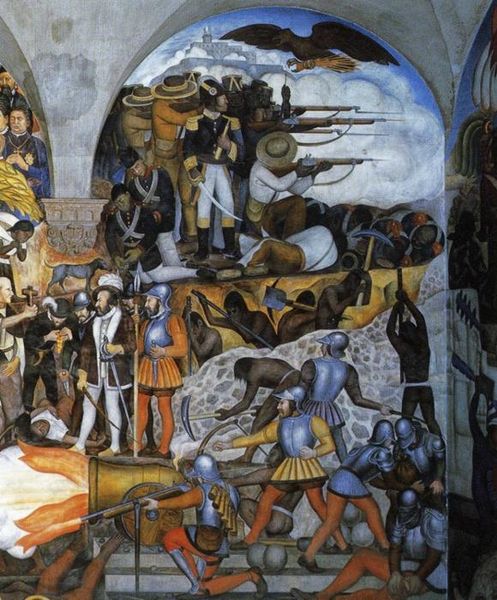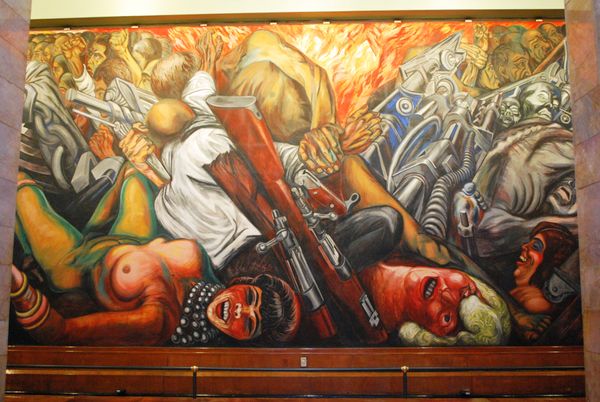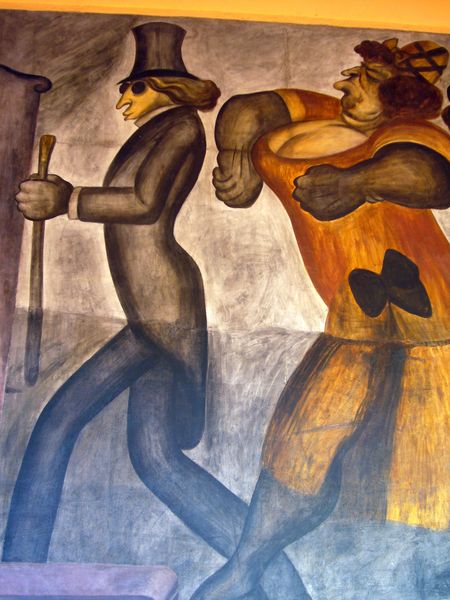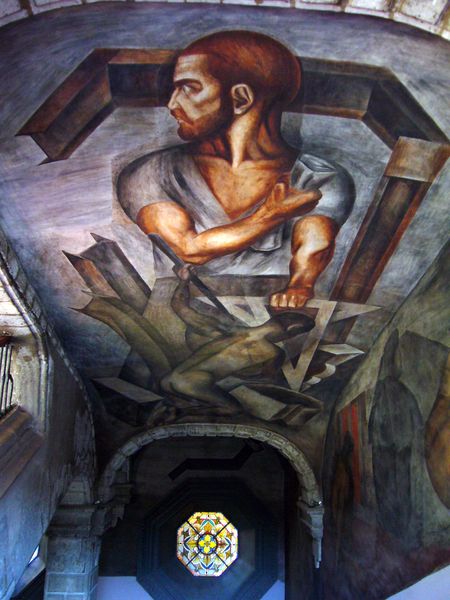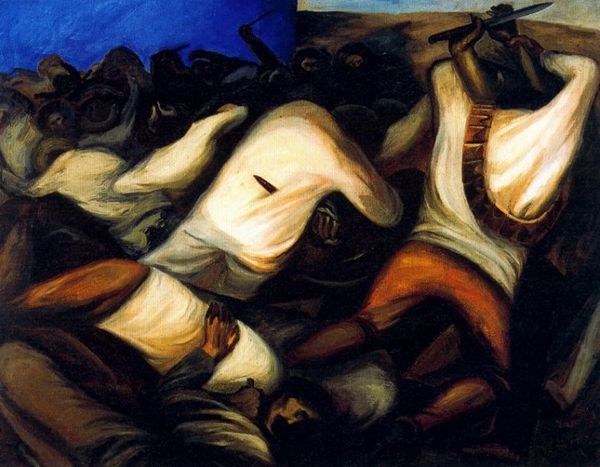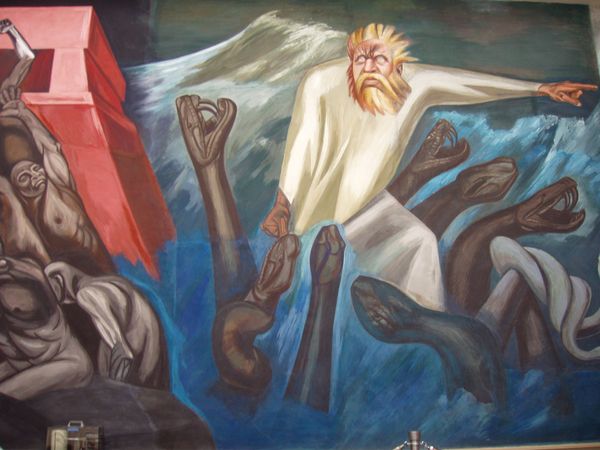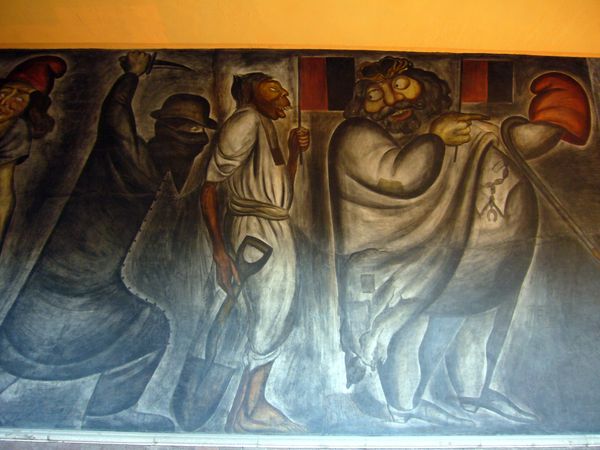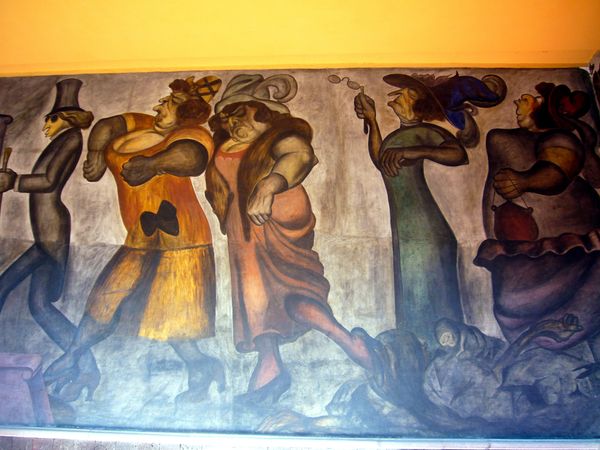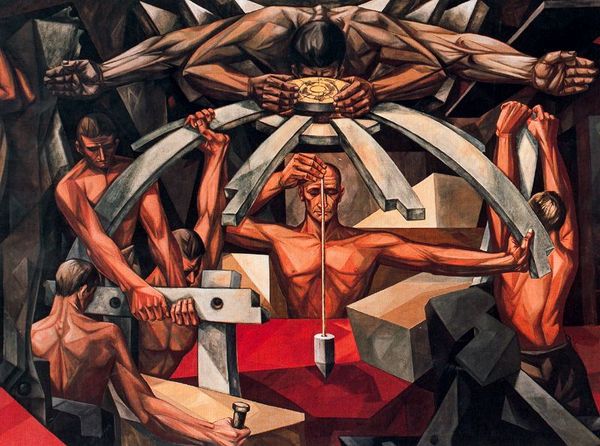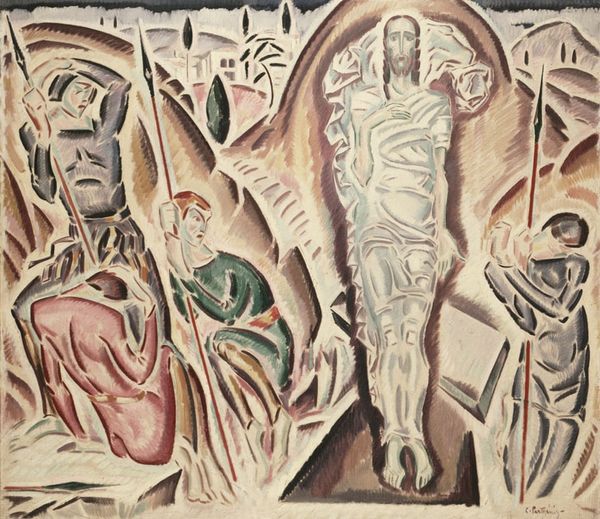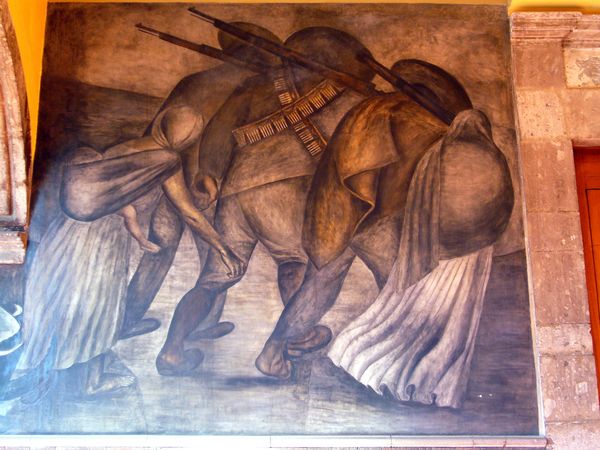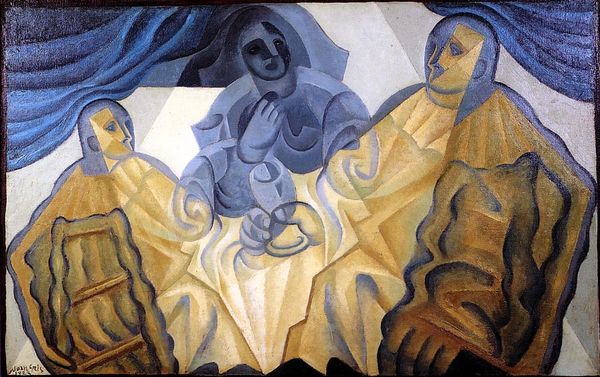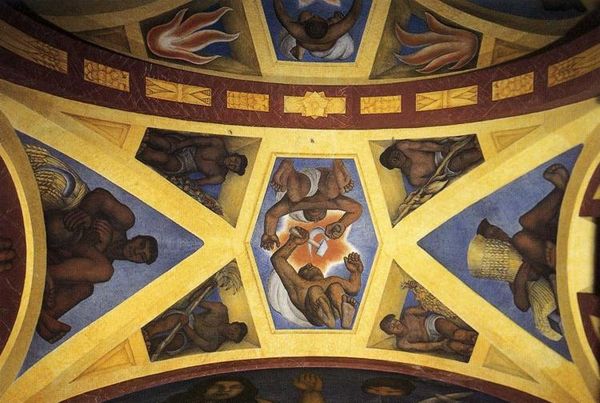
oil-paint, mural
#
portrait
#
allegories
#
allegory
#
symbol
#
prophet
#
oil-paint
#
figuration
#
oil painting
#
roman-mythology
#
intimism
#
men
#
mythology
#
mexican-muralism
#
history-painting
#
mural
Copyright: Public domain
Curator: Well, the first thing that strikes me is how raw it feels. The colors are almost burnt, the figures are writhing… it’s not exactly a peaceful image, is it? Editor: Not at all. It is indeed, viscerally powerful, isn't it? This is Jose Clemente Orozco's "Prometheus," painted in 1930 using oil paints. A mural portraying the Greek Titan's act of stealing fire for humanity. It resides within the dining hall of Pomona College, if I’m not mistaken. Curator: Ah, fire… yes, the life spark, rebellion, all rolled into one. He’s practically tearing himself open, giving away some piece of himself in this monumental effort. The suffering and triumph, right? Editor: Absolutely, but let's unpack that "fire" for a moment. Beyond the obvious connotations, fire represents enlightenment, technological advancement, even civilization itself. Prometheus is gifting humankind knowledge, but with that knowledge comes inevitable pain, responsibility, and conflict. You see this in the writhing figures below him – they're a tangled mess of humanity. Curator: I see the darkness now. And those are supposed to be the "lucky" recipients! Kind of makes you wonder if Prometheus really did us a favor or just got us into a whole mess of trouble. Is that the idea maybe? A double edged sword or some such? Editor: Orozco lived through the Mexican Revolution, saw the devastating impact of progress and political upheaval. It wasn't always beautiful or neat. Prometheus becomes this incredibly ambivalent figure, a hero perhaps, but one who shoulders the immense burden of human destiny, for better and worse. Note how the artist gives all of them classical allusions of suffering with his choices of light. It gives the fresco, also an allegorical image, and even Roman stylistic elements a haunting but not unexpected tone, it makes the tragedy more tragic. Curator: What are you hoping viewers really walk away with? Like, "Oh wow I got something". Editor: I think Orozco's Prometheus isn't just about the past. It's about our present, our ongoing struggle with progress, technology, and the choices we make as a society. Curator: And how we manage our internal flame. So don't play with fire… unless you know you're prepared to deal with a burn or two along the way, maybe? I'd like to think about that some more. Thanks!
Comments
No comments
Be the first to comment and join the conversation on the ultimate creative platform.
